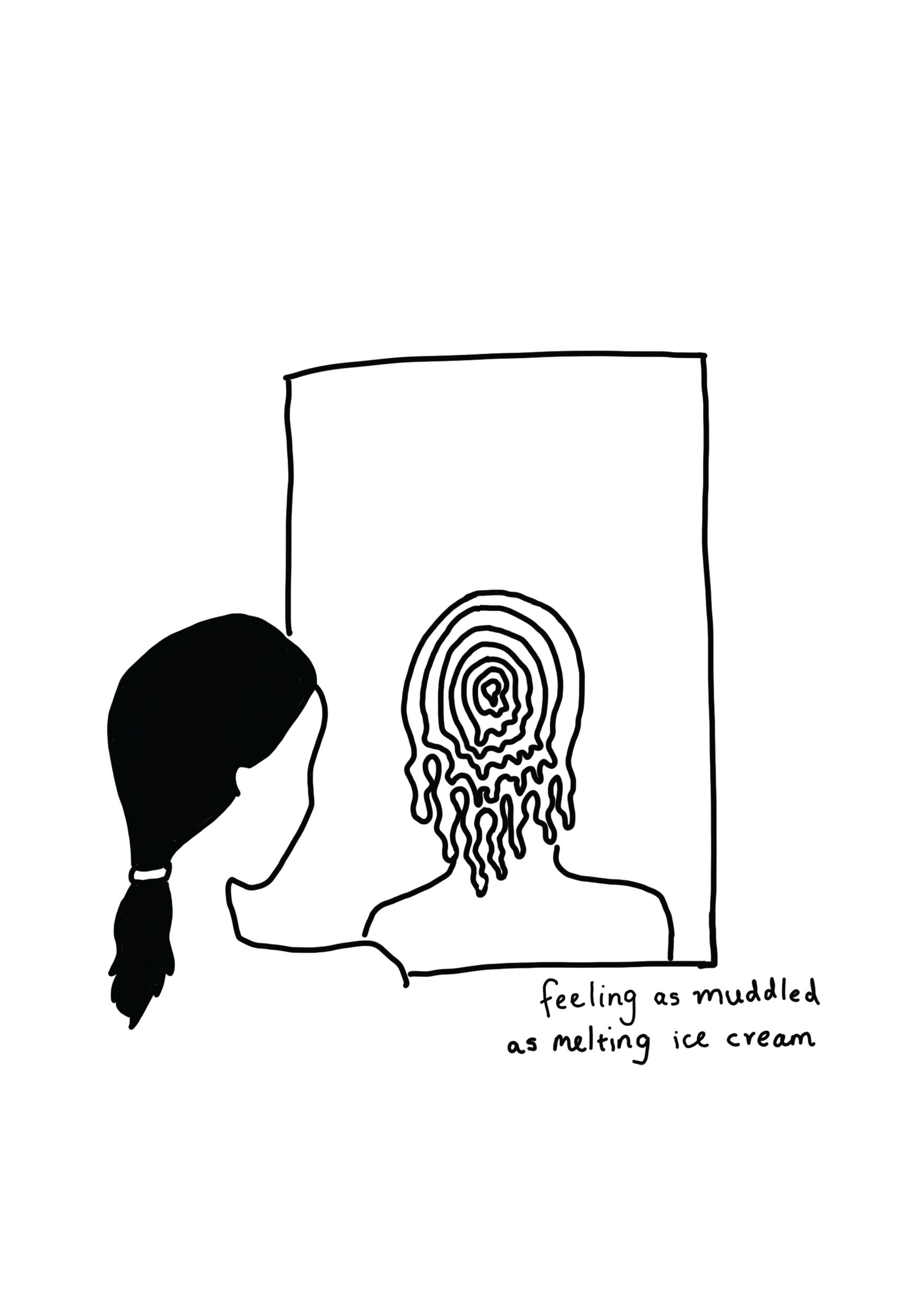Words by Carynn E-Jin Lai
Image by Vivian Hu | @vivmakes
I sucked in a breath as I opened the email that began with the words ‘confirmation for reservation’. It was a ticket from Malaysia to Melbourne. A one-way ticket that opened the gates to a new path of my life. The packed luggage in the corner of my bedroom kept me up all night. I looked around and saw all the things I could not fit into my suitcase, every item that held a memory was left on the shelves, in drawers and stashed somewhere in the house. I was flying alone for the very first time and even though I prepared myself for this change, it still kept me up at night. I listened to the the rhythm of my breath as all sorts of emotions danced through me.
I quickly fell into a routine when I arrived in Melbourne. I would Google the route and double check it, head out to the bus stop, walk to RMIT, attend classes, then go home. The next day, I’d rinse and repeat. I was afraid of deviating from the route. I made friends but mostly I kept to myself, finding comfort in Skype calls back home and barricading myself within the walls of my bedroom. Although I flew to a new land, a part of me had clung onto the soil back home.
As with most things, the more you use it, the faster it wears out and as time progressed, I grew out of my routine and out of my shell. As the only international student in my cohort, I was hanging around with locals. During Skype calls, I told my friends stories about buskers, introducing them to fairy bread and vegemite, and explaining that ‘arvo’ means afternoon. I told them how retail workers greeted everyone with a “hello, how are you?” and the importance of coffee to most of my friends. I adapted to this new world I was in and I loved every moment of it. I felt myself growing every day. I went from too shy, and scared to ask for cutlery from the waitress, to a student ambassador leading campus tours. I was no longer mumbling words but saying them loud and clear. I was fitting in and felt like I had become someone else—someone better. And my friends noticed it too.
“Listen to the way she speaks now,” my friend laughed during a Skype call. I laughed along as they tried to mimic the way I spoke. When the call ended, a strange fear crept up on me. I had a friend back home who spoke fluent English. Everyone said she had an accent, but they also said that she was faking it for attention. I told myself that I was overthinking, they were just having fun, that’s all. But what if they did think I was forcing it? What if I was really forcing it to fit in? Who had I become?
Those thoughts lurked behind my mind like a shadow. I fell into a deep hole where two sides of me—the person I was back home and the person I was now—were fighting against each other. I felt the growth and I loved who I was becoming. Yet the fear held me back from taking the next step. I was in quicksand, I wanted to move on but every step I tried to take made me go deeper. I did not want them to see me as someone else. I did not want them to say that I’ve changed. Mostly, I did not want them to treat me differently. During the nights where the white noise was the loudest, I conjured up a dystopia where I went home after three years here and had become unrecognisable.
It felt as if I was a foreigner to my friends, like a year in a Western culture had somehow erased the 18 years I spent growing up in an Asian culture. I wanted to embrace the person I was becoming but I did not want the mockery that came with it. I shifted through threads of myself, trying to figure out what I wanted—who I wanted to be. Every time I considered cutting the threads I had sewn over my time in Melbourne, I stopped, thinking about how much I had grown. It was this constant push and pull that staggered me. It took me months to untangle the mess I made shifting through the threads. It took me months to realise that I don’t have to pick a side or a category, I am still me, even though I went through a change.
I am still me.


